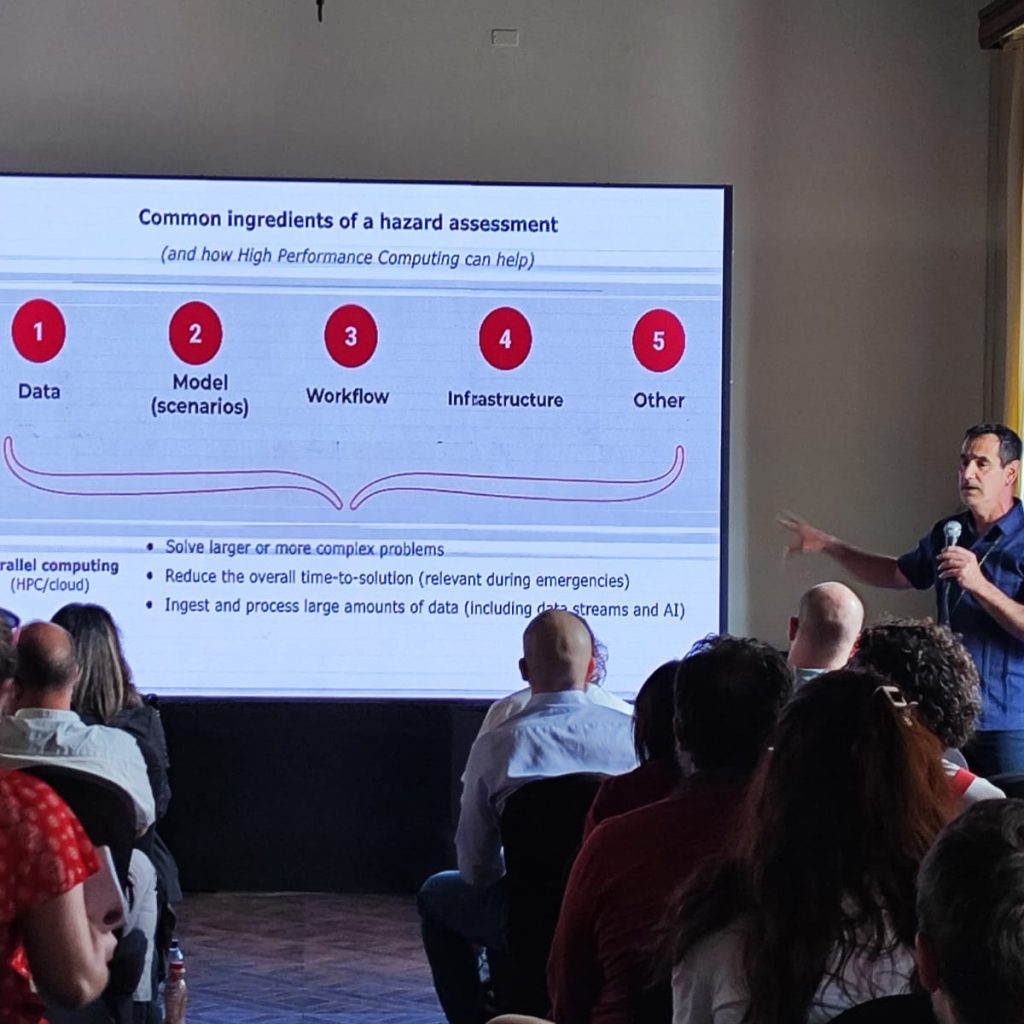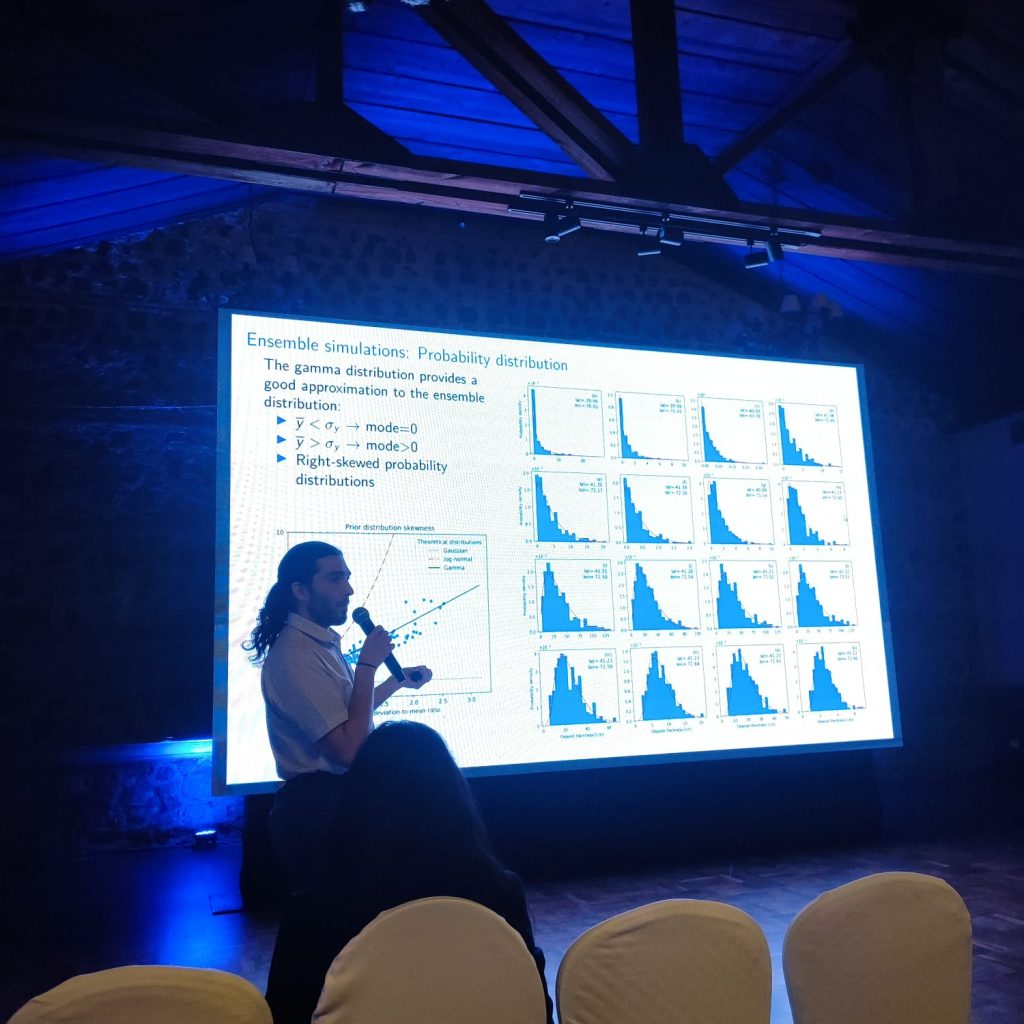Presentations by DT-GEO Researchers
Arnau Folch presented two talks during the conference.
- “Volcanic Hazards and Multi-Hazard Assessments Combining HPC with Field Data” focused on using high-performance computing (HPC) to integrate observational data with models for a more complete picture of volcanic hazards. The approach combines different types of hazards, such as ash dispersion and pyroclastic flows, to better understand the potential impacts on affected areas.
- “Probabilistic Hazard Analysis of Active Volcanoes Based on Energy Partition” explored a probabilistic framework to study volcanic activity. By looking at how energy is distributed in volcanic systems, this work aims to improve predictions of future events and assess the uncertainty in hazard scenarios.
Leonardo Mingari’s talk, “Ensemble Atmospheric Dispersion Modelling of Volcanic Species: Interpreting Ensemble Data and Applications,” addressed the use of ensemble models to study how volcanic ash and gases disperse in the atmosphere. By analyzing multiple simulations, his work offers insights into how volcanic emissions might affect areas downwind, with practical applications for aviation safety and public health.


Connecting Research and Practice
The presentations by Arnau and Leonardo highlighted practical ways to combine advanced modeling techniques with real-world data, offering tools to better understand and mitigate volcanic risks. Events like Cities on Volcanoes provide a valuable space for researchers, decision-makers, and practitioners to exchange knowledge and explore collaborative solutions to the challenges faced by communities near active volcanoes.
This ongoing work is a step forward in understanding complex volcanic processes and finding ways to reduce their impacts.




